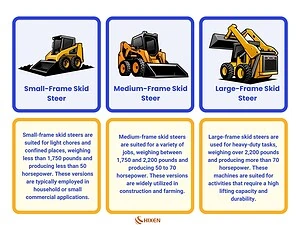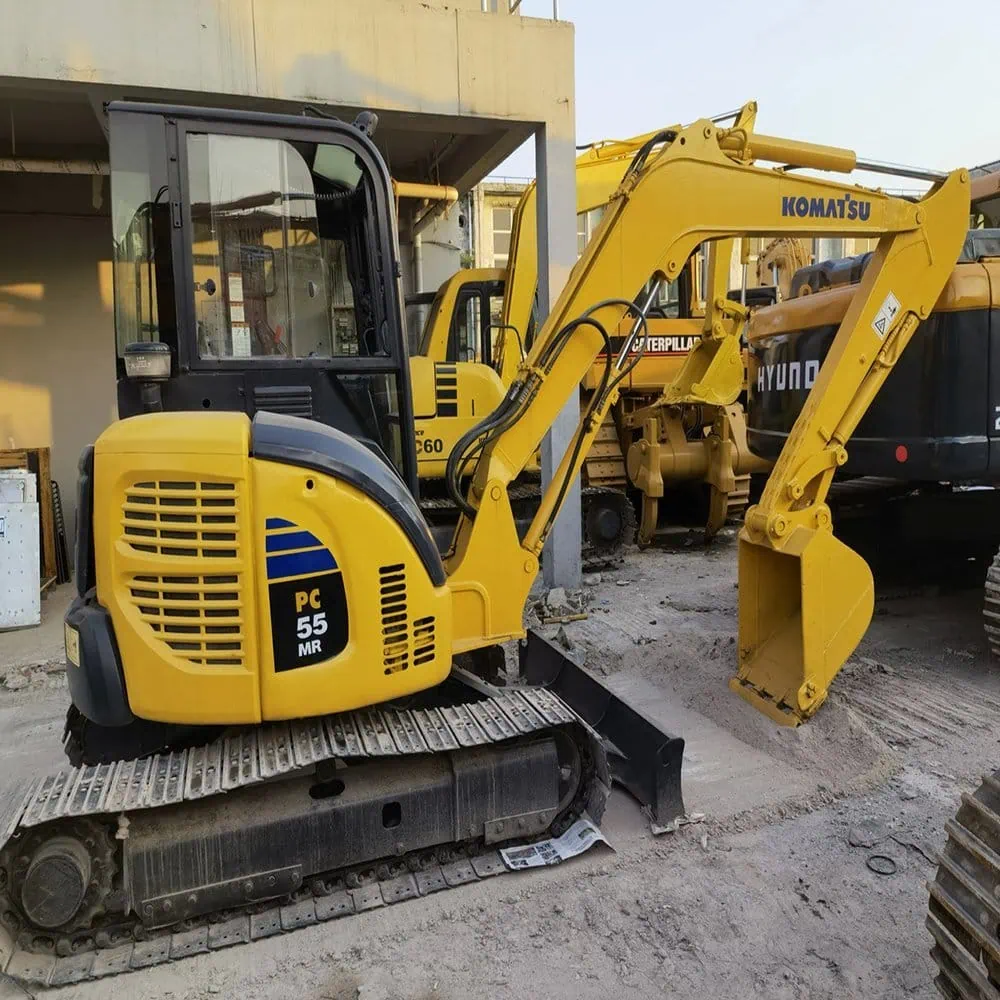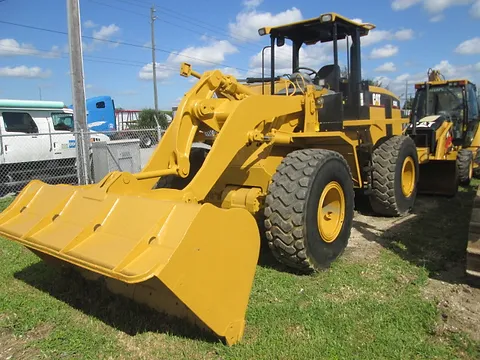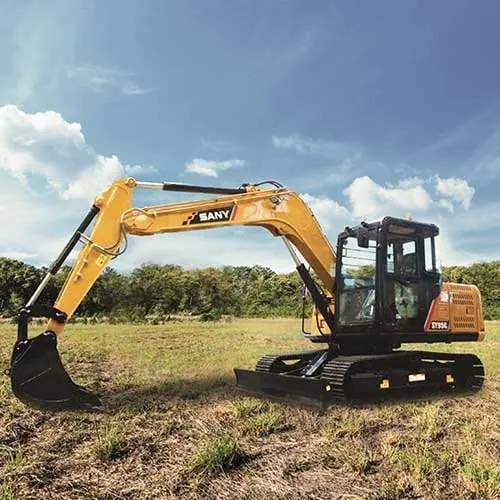Rust on an excavator can be more than just unsightly; it can also damage your machine and reduce its life span. If you are worried about the performance of your existing machine or thinking about buying a used excavator, knowing what causes rust and how to prevent it is vital. In this article, we’ll cover several key steps to keep your machine rust free.
Excavator rust is a common issue that can lead to costly repairs and downtime. Preventing it requires a combination of proper maintenance, protective coatings, and environmental awareness. Regular cleaning, using high-quality paints, and ensuring your machine stays dry can significantly reduce the risk. In this guide, we’ll discuss practical solutions to prevent rust on excavators and ensure your investment lasts longer. Learn the best practices to maintain your excavator’s performance and prevent corrosion, saving you money in the long run.
Now, let’s dive into the main causes of excavator rust and explore actionable tips to keep your equipment safe.
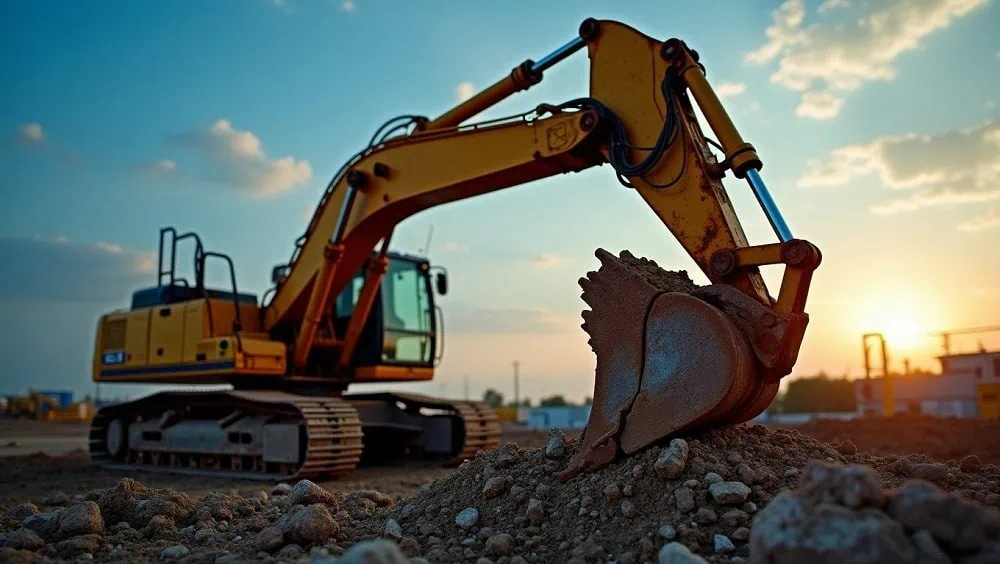
Оглавление
ПереключатьWhat Causes Excavator Rust?
An excavator rust doesn’t happen overnight, it’s the result of several environmental and mechanical factors that over time will erode the metals on your machine. Below are the primary causes:
Environmental Factors
Another cause of excavator rust comes from operators who fail to perform proper post-operation maintenance. This maintenance includes cleaning and drying the equipment to prevent rust from forming. Excavators that sit idly for months without proper storage and maintenance will develop surface rust. Even one season of improper storage can cause detrimental damage to an excavator.
Frequent Contact with Water
Excavators are exposed to moisture, whether it’s rain, work in a wet mud hole, or working in the dirt and mud around water. When water is allowed to sit on the skin of your machine and not dried off, you allow the start of rust, especially in areas where water can be trapped, such as under the tracks, areas around joints, and inside the cavities.
Lack of Proper Maintenance
Maintenance is critical for preventing rust. After you get done working your excavator in the mud or during rainy times of the year, if you don’t clean that thing off, it can rust and rust and rust. You need to perform inspections. If you find a little bit of rust here or there, chisel it off so it doesn’t cause your excavator to deteriorate.
Damaged Paint or Coating
Generally, excavators are painted for a reason, and that’s to protect them from rust. Any scratch, ding, or removal of paint or coating that exposes the metal allows moisture to penetrate the surface and begin the rusting process. If paint is removed or worn off by extreme working conditions, your excavator is going to start rusting sooner rather than later, causing your machine to look bad and eventually affecting the structural integrity.
Corrosive Materials Exposure
An excavator will encounter various chemicals, oils, and other corrosive materials during normal operation. These things can eat your metal up and cause your machine to rust faster. If not treated properly, like safe cleaning of
the areas exposed to these chemicals, you can start a track of rust in no time at all. This type of rust can originate from substances like fuel spills, acids, or other chemicals that your machine comes in contact with during normal
operation.
How Rust Affects Excavators?
Rust can cause significant damage to the appearance and operation of an excavator. Let’s examine how rust can affect your machine.
Performance Decrease
Another noticeable impact of excavator rust is cosmetic. Rust can make your equipment look old, uncared for, or even dangerous. If your business is in construction, heavy equipment, or trucking, this may not matter much until you go to sell the equipment. Then, you are fighting a losing battle to convince the buyer your equipment is as good as they hope.
Aesthetic Damage
While performance is the main deal, rust can also affect the way your excavator looks. If it’s all rusty, besides not working well, it’s not going to have the right look to it . A rusty machine is just not nearly as appealing to people. If you try to sell it, anyone who knows nothing about equipment will still think it looks like crap.
Structural Integrity
When excavator rust is present, it can build up, causing physical damage to metal surfaces, reducing the strength and reliability of the metal components. This can result in metal parts failing, cracking, or breaking. Over time, rusting metal surfaces can degrade to the point that the whole excavator rust becomes hazardous to operate, needing costly repairs or complete replacement of certain components.

How to Prevent Rust on Excavators?
Preventing excavator rust is key to extending the life of your excavator and ensuring it remains in good working condition. Below are some effective methods to prevent rust formation:
Regular Cleaning
Clean excavator one of the simplest and best things you can do on a routine basis to prevent rust. After working in the mud, wet, or acidic atmosphere, wash the machine down good to remove all the dirt, debris, and moisture that can lead to rust. Focus on the high-risk areas like the undercarriage, tracks, and pivot points. Thoroughly dry the machine out before you put it up for storage.
Protective Coatings
If you slap on a good coat, or two, of high-quality paint or anti-corrosion coating, you form a barrier so the moisture and corrosive elements can’t get to the metal. Inspect the coating regularly for signs of wear, then touch it up or reapply as needed. Consider using some of the many excellent, specialized rust-resistant coatings on the market for heavy construction. Many of the generous-use, long-lasting coatings do a great job of keeping rust away.
Proper Storage
Proper storage can make all the difference. When the machine is not being used, put it in a dry, well-ventilated area to keep moisture away. If you keep it outside, consider investing in a good protective cover that will keep the rain, snow, and moisture away from the machine. Again, you can rig up a low-cost and highly effective temporary or permanent, covered area in no time, using 2×4’s, sheets of metal or silicone-coated tarps, a steel-roofed carport, or a shipping container
Routine Inspections and Maintenance
Inspect your machine regularly to catch the rust before it gets out of hand. Look at all the places excavator rust is most likely to form, such as the undercarriage, hydraulic components, and pivot points. You’ll see if rust starts to form. If it does, clean it up and treat it before it spreads. Sand the affected area to clean it up as best as you can. Then apply either a ready-to-use anti-rust product or mix your own solution and coat the affected area with a good long-lasting rust-preventing coating. This is your chance to add an extra wall between the atmospheric moisture and your machine.
Use of Rust Inhibitors
Rust inhibitors are chemicals designed to prevent rust from forming. You can spray, brush, or otherwise apply a layer of the rust-inhibiting chemical to the surface of your metal. It forms a barrier that prevents moisture and atmospheric elements from getting to the metal. There are a hundred different products if you ask around, including excavator rust-inhibiting sprays and oils. Spray or apply it on a regular basis to any place or component you think is at a high risk of rusting.
Best Practices for Excavator Rust Prevention
To ensure your excavator remains excavator rust free for as long as possible, follow these best practices:
Keeping Excavators Dry
Of course, moisture comes from water. If you wipe your machine down and keep it dry, you have gone a long way to stopping the rust process. Store your machine out of the wet. If you put it up wet, you are in for a maintenance nightmare. Promptly repair all paint scratches to minimize exposure of bare metal to the elements. Keep the machine away from the beach or salt water. In addition to cleaning after a shift’s work, some conditions will require extra diligence. If you are in conditions that are naturally moist and damp, you need to do a little more.
Using High-Quality Paint and Sealants
Finally, paint and seal all the important stuff you have just put on your excavator. Spend the extra money and buy good paint and rust-inhibiting sealers. This is what is going to “cover” your investment and provide a protective barrier between the metal and the outside world. These products prevent moisture from ever coming in contact with the metal and causing it to rust. Keep up with your paint, and touch it up as necessary.
Training Operators and Maintenance Personnel
Educate your operators and maintenance people about rust prevention. Make sure they understand the importance of washing, looking at, and maintaining your equipment. Encourage people to tell you if they see a spot of rust so you can clean it and paint the area.
Seasonal Care
Additionally, some areas use salt or other chemicals to de-ice roads during the winter. Salt can significantly increase the chances of rust formation, especially in vehicles that see regular exposure to treated road surfaces. If you live in a salt-use area, you need to clean your vehicle as much as possible and apply any necessary rust prevention coatings often. The bottom line: You need to stay on top of your maintenance to keep your vehicle rust-free.
Best Practices for Excavator Rust Prevention
Even with basic measures like clean excavator and coating, the best practices for preventing rust are key to keeping your excavator in good working condition over the long term. Here are some in-depth practices that not only apply to daily operations but also include specific techniques for maintenance, ensuring that your excavator’s metal parts stay protected from corrosion.
Keeping Excavators Dry
The most basic, the most effective thing you can do is prevent moisture from even getting there. Heat, light, moisture, and metal are the four key pieces you have to manage. Moisture is a pretty big deal around here; it’s the primary cause of rust, so prevent it from getting there in the first place. Keep it out of the water for as much time as you can.
When it’s raining, when you’re in the wet season, when it’s springtime whatever you want to classify it as, keep the machine out of the water as much as possible. Focus your time in these areas at the drain points on the machine. Keep the water from accumulating in these cab corners, in the back of the seat, and the toolbox. Make this area a higher priority when you’re doing your visual inspections and doing your cleaning process.
- Use Drainage Systems: Many machines have drainage holes or channels built into them. Use them to get rid of any water from rainfall. Once it stops raining, drive the machine down to an area where the water will run off and dry out the area. Make sure your drainage system is not plugged up or stopped up.
- Initial Actions to Slow Down Rust: Once the site is settled, scrape and brush off as much mud and clay as possible from the high-wear areas (the bucket, quick coupler, and dozer blade). Hose down the rest of the machine with a tip pressure washer to wash away the impacted dirt and debris. Run the track hoe around to circulate the oil, to heat up and dry out the engine, hydraulic fluids, etc.
- Keep the Machine Dry: Regularly inspect the excavator for any trapped moisture, particularly in hard-to-reach areas or cavities. After each use, ensure the machine is completely dry, especially after working in high humidity or wet environments.
Using High-Quality Paint and Sealants
Choose the right coating or sealant for the surface you are protecting. There are coatings for steel, aluminum, iron, Be sure to use the right product for your needs. Follow the manufacturer’s recommendations for surface preparations. Surface preparation is essential for a successful application. Use personal protection to comply with safety regulations and to protect yourself. Hang or spray your coating, following the manufacturer’s guidelines. Do not apply coatings that are too thick, or they may run or sag and not adhere to the surface correctly.
- Regularly Inspect and Maintain Your Coatings: Over time, your coatings can wear off or become damaged. Regularly check the integrity of your coatings, especially in parts that receive wear and tear. This typically covers your undercarriage, tracks, and metal joints. If you see any scratches, scuffs, or damaged areas, apply touch-up paint or sealant to keep moisture from the metal.
- Reapply Your Coatings Regularly: You need to reapply fresh anti-corrosion coatings periodically. These coatings last about 1-2 years, depending on your work environment. If you’re running a machine in a super dirty, harsh environment, you might need to recoat it more often to maintain the same amount of protection.

Training Operators and Maintenance Personnel
excavator Effective rust prevention doesn’t only rely on the equipment itself, it also depends on proper training for operators and maintenance personnel. Correct operational habits and maintenance routines can reduce the risk of rust significantly. Include these critical training topics:
- Proper Clean excavator Practices: Train and coach operators on how to effectively clean excavators. Most operators do not know how to remove the dirt, chemicals, and moisture that cause rust. Cleaning and rust protection require professionals using professional cleaning agents and tools.
- Regular Inspections: Operators should inspect every area of the excavator daily to ensure rust is not building up. Specifically, pay attention to the undercarriage, hydraulic components, and any exposed tracks. Practical standards may apply in making you clean more often than daily, or during annual repairs, or during the off season.
- Operational Precautions: Throughout the day, operators must understand actions that increase the potential for corrosion such as leaving the excavator out in the rain or sitting in damp, humid, or salty air all night. Additionally, do not park an exposed excavator in the open or out in a field where you can literally watch it rust.
Seasonal Care
Different seasons create unique opportunities for rust to develop. Wet springs, hot summers, and cold winters all can have a significant impact. If you miss salt or other chemicals being applied to roadways during the winter
it could really hurt you. Here are some things to think about in each season before it gets here.
- Winter Maintenance: In cold areas, it is crucial to monitor the condition of the hydraulic systems and other moving parts for ice that might have formed in the joints or on top. Cold makes metal parts more brittle, so they can more easily fall prey to rust. Your inspections should increase to account for the potential for rust.
- Summer Heat and Humidity: Heat and humidity speed up the evaporation of moisture and increase the speed of rusting, particularly as metal surfaces heat up first thing in the morning. Inspection becomes more important during the summer, as well as cleaning the machine more often to remove the moisture and prevent rust.
- Rainy Season Maintenance: In a normal climate, during the rainy season or after it rains, the machine needs to be cleaned to remove the moisture that is lying on and within the machine which can create rust. Mostly check the paint, protective coatings, and locations where you have applied rust inhibitor or other metal protectants.

Заключение
It might seem like a small thing, but if your экскаватор rust sets, it can be deadly. It’s not good on any of the moving parts and it can cause every kind of trouble. It will take the machine down and make it unsafe. Nothing you put on the market for resale is worse than a rusted or beaten machine-people will pay less.
Establish a routine for your machines and people to maintain cleanliness, check for rust, and apply protective coatings to keep your equipment in the best condition possible.If you need second-hand construction machinery, please feel free to contact me. Our company specializes in all kinds of second-hand construction machinery. I can provide you with high-quality machines and reasonable prices. My email is abby@hixenmachinery.com



